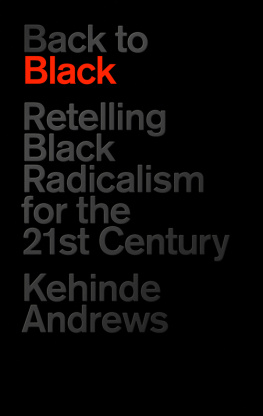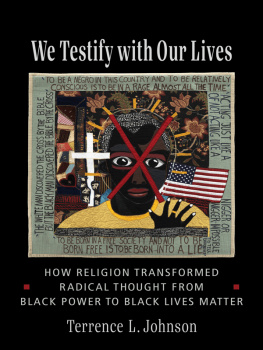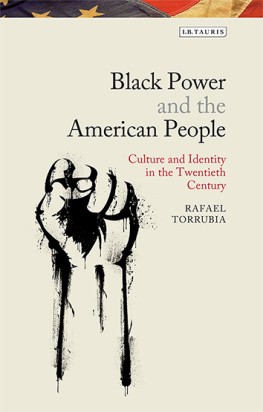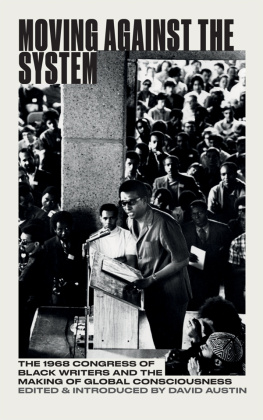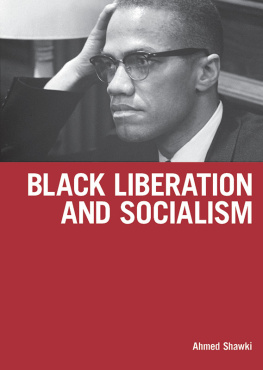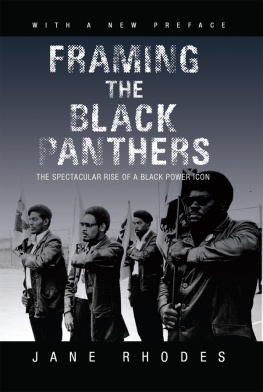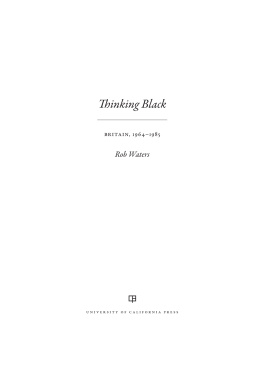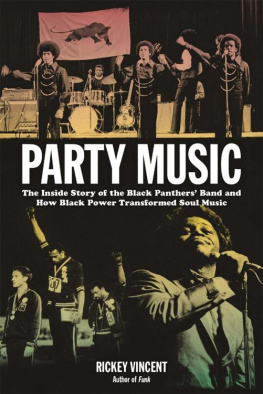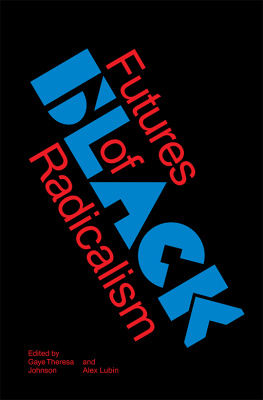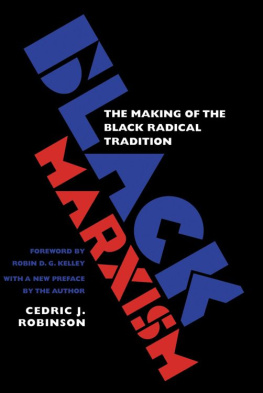
Andrews is ferocious and brilliant and absolutely indispensable.
Junot Daz
Andrews takes the concepts that underpin so much of our woolly, contemporary talk about blackness, structural racism, pan-Africanism and most of all radicalism, and does the hard, essential work of re-inserting meaning and critique into the debate. An unflinching and authentic contribution.
Afua Hirsch, author of Brit(ish): On Race, Identity and Belonging
No more timid, liberal bullsh*t or empty jingoism. Kehinde Andrews is a brilliant, black British intellectual who searingly and expertly reveals the meaning of real change, for those willing to face it. In a time of flux, doubt and uncertainty, Kehinde provides a clear and lucid voice. Back to Black is an important book for anyone interested in real change and what that is likely to cost.
Russell Brand
Andrews pulls no punches. His concept of black radicalism is raw and powerful. This book is sure to provoke, and will gain him adversaries both black and white because of the home truths it exposes.
Femi Nylander, Rhodes Must Fall
A timely and important book capturing an important political moment in north Atlantic culture.
Robert Beckford, BAFTA winning documentary filmmaker
Back to
Black
Retelling
Black
Radicalism
for the
21st Century
Kehinde
Andrews

Back to Black: Retelling Black Radicalism for the 21st Century
was first published in 2018 by Zed Books Ltd, The Foundry,
17 Oval Way, London SE11 5RR, UK
www.zedbooks.net
Copyright Kehinde Andrews 2018
The right of Kehinde Andrews to be identified as the author of this work have been asserted by him in accordance with the Copyright, Designs and Patents Act, 1988
Typeset in Haarlemmer by seagulls.net
Index: Kehinde Andrews
Cover design: David A. Gee
All rights reserved. No part of this publication may be reproduced, stored in a retrieval system or transmitted in any form or by any means, electronic, mechanical, photocopying or otherwise, without the prior permission of Zed Books Ltd.
A catalogue record for this book is available from the British Library
ISBN 978-1-78699-278-9 hb
ISBN 978-1-78699-279-6 pdf
ISBN 978-1-78699-280-2 epub
ISBN 978-1-78699-281-9 mobi
For Assata, Kadiri, Omaje, Ajani
and
the people in the struggle
Contents
Writing this book has been a collective process with me drawing on influences, experiences, conversations for years. Foremost of those influences have been my parents, Carole and Maurice Andrews, whose activism, dedication and book collection on the Black liberation struggle made this book possible. Also a big thank you to my sisters Nzinga and Zakiya for always challenging me to think beyond the surface. I, of course, could not have written the book without the unconditional support of my wife, (Dr) Nicole, who challenged me to rethink the concepts and ideas, while also taking the strain of the hours I had to be out of the house or in the office writing.
A big thank you also has to go to the Black activist community in Birmingham, in particular the African Caribbean Self-Help Organisation and all the people who have been involved with Harambee Organisation of Black Unity. Thanks also to anyone who has come to talk, a meeting, volunteered, or who I have met a conference, taught in class, or bent your ear over a coffee or having a drink. Every interaction, conversation and argument has gone into crafting the book. We may not have agreed (and this will be obvious in the book) but I couldnt have written it without you.
Finally, I am indebted to those people in the Black liberation struggle who organised, struggled, fought and even died for freedom. There is no book without those sacrifices and I dedicate the work to all those who have gone before.
Black Lives Matter, No justice, no peace and even Black Power were chants bellowed by the crowd of protestors. The killings of Philando Castile in Minnesota and Alton Sterling in New Orleans sparked a mass reaction. Watching Castile bleed to death on Facebook was bound to provoke a response. Thousands of people poured out onto the streets to demonstrate their anger and disgust at the slaying of yet more Black bodies at the hands of the police. As the march settled outside the police station, speaker after speaker stepped to the mobile podium condemning the racism and brutality of the pigs. Family members of those who had died in police custody gave impassioned calls for justice. Tension on the streets of Birmingham crackled through the crowd. When Malcolm X spoke of a racial powder keg, it was this kind of scene he had in mind. Close your eyes, take in the crowd and you could well be in Alabama in the 1960s. But this is a protest in the second city of Britain in the twenty-first century and the picture tells us how little things have changed in the last fifty years, and speaks to the global nature of racism.
Crowds of Black people came onto the streets following events that took place thousands of miles away because they related directly to our experiences. Just as in America, the The protest in Birmingham was actually a pre-arranged march for justice for Kingsley Burrell, who died in police custody after a chain of events that started when he had called the police. At the march the families recounted the names of Demetre Fraser, Sarah Reed, Mark Duggan and many more. You are unlikely to be shot by the police in Britain because the majority do not carry guns. But if you are Black you are more vulnerable to death after police contact.
Black Lives Matter protests sweeping across Britain were not just about the shared experiences of police abuse. The shootings in America drew a much larger protest than the typical marches for justice for people killed in Britain. To understand the depth of feeling in Britain to slayings in America is to grasp the connections of Blackness, which cannot be contained by national borders. When we see Philando Castile bleeding out we are not looking at a distant stranger. We are seeing our brother, our father, our cousin, our friend. His killing happened to Black communities in Britain as much as it did to those in Minnesota. It is that connection, that pain, which drew the largest Black mobilisations for years onto the streets of Britain.
Black Lives Matter has re-energised Black political movements across the globe. In both Britain and America the battles and hard-fought victories for recognition and legislation have lulled us into a false sense of progress. Landmark gains for civil and voting rights in America, and race relations bills in Britain opened up the dreams of inclusion and equality for Black so-called citizens. The sad reality is that fifty years after these apparent gains racism is as embedded in the fabric of society as ever, coded into the DNA of the system. There may have been a Black man in the White House for eight years, but under his rule the value of Black life depreciated. The poverty rate, wealth gap, evictions and food stamp usage all went up under the watch of the first Black president. It was truly a case of a Black man, White house. Meanwhile, the police continued to bring the hammer down on Black communities, providing the horrifying footage that relit the sparks of protest. Now that the fires of protest have been lit the question is what direction they will take.
These disagreements were not some personal squabble between two men; they were based on a fundamentally different view of the world. Malcolm and Martin did not have the same goals; they did not even see the problem through the same eyes.
Next page
